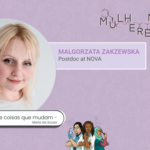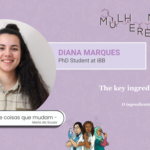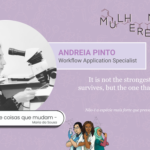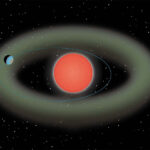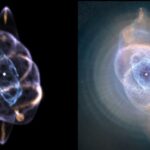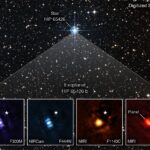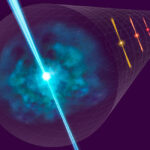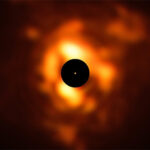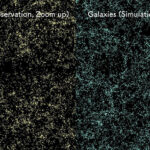SoapBox Science Lisbon 2022 – Article by Malgorzata Zakrzewska
Article by Malgorzata Zakrzewska 🇵🇹 Versão portuguesa disponível aqui You Got this! If there is one thing I’ve learned is all the management skills that we boost during the maternity leave, such as multitasking, scheduling, risk assessment, negotiating, problem(drama)-solving, stress/crisis control, communication (including non-verbal), or innovative thinking, and…
SoapBox Science Lisbon 2022 – Article by Inês Navalhas
Article by Inês Navalhas 🇵🇹 Versão portuguesa disponível aqui Science communication: a bridge between the past and the future of science What role can science communication play in peoples’ lives? Image: Tom Dunne, American Scientist 2015. In history, there are several examples of the use and importance of science…
SoapBox Science Lisbon 2022 – Article by Diana Marques
Article by Diana Marques 🇵🇹 Versão portuguesa disponível aqui The key ingredient of a recipe I was raised in a big family. I have four brothers, and eating together has always been a time for bonding. We ate, enjoyed ourselves, and got caught up in conversations during that time. Interestingly,…
SoapBox Science Lisbon 2022 – Article by Andreia Pinto
Article by Andreia Pinto 🇵🇹 Versão portuguesa disponível aqui It is not the strongest of the species that survives, but the one that is most adaptable to change. Charles Darwin There is no recipe for life. No perfect timing. Life just happens. And the more we move the more…
What’s like The Sun and The Earth – only Redder and Heavier?
Astronomers have discovered a super-Earth – planets that are much like our Earth but heavier – near the habitable zone of a red dwarf star, only 37 light-years from us. That's really really close to our planet in astronomical terms! Schematic diagram of the newly discovered Ross 508 planetary system.…
Cat’s Eye Nebula seen in 3D
Versão portuguesa disponível aqui Researchers have created the first computer-generated three-dimensional model of the Cat's Eye Nebula, revealing a pair of symmetric rings encircling the nebula’s outer shell. The rings’ symmetry suggests they were formed by a precessing jet, providing strong evidence for a binary star at the centre of…
Webb takes its first exoplanet image
Versão portuguesa disponível aqui For the first time, astronomers have used the NASA/ESA/CSA James Webb Space Telescope to take a direct image of an exoplanet. The exoplanet is a gas giant, meaning it has no rocky surface and could not be habitable. The image, as seen through four different light filters,…
Explosions help us measure distances in the Universe
How do astronomers measure large distances in the far away corners of the Universe? An international team led by Maria Dainotti – an Assistant Professor at the National Astronomical Observatory of Japan (NAOJ) – has just found a new way to do it. Conceptual image of this research: using Gamma…
One of the brightest stars in the sky is evolving and dying before our eyes
Versão portuguesa disponível aqui Nothing lasts forever, including the stars in our night sky. One of the brighter and more notable stars in our sky is Betelgeuse, the bright red supergiant in the shoulder of Orion. Infrared light emitted by dust around Betelgeuse in December 2019. Credit: ESO/P. Kervella/M. Montargès…
Artificial intelligence helps astronomers see farther and sharper
To understand the evolution of the Universe, astronomers use many complex equations. Because there are some things that we do not know for sure yet, scientists have to estimate some of the values in these equations – such values come from different simulations, and the best ones match real-life observations…

